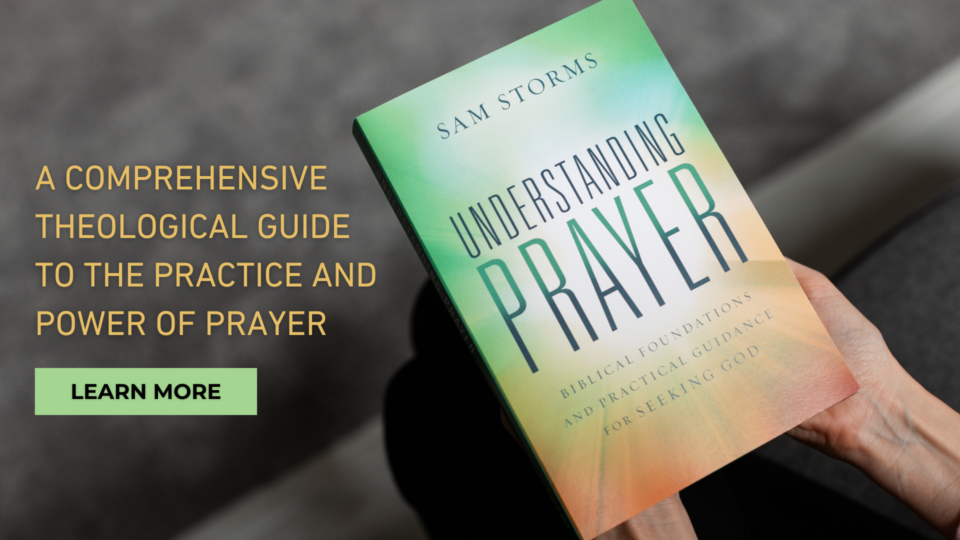This week the blog is sponsored by Zondervan Reflective. This is an excerpt from Understanding Prayer: Biblical Foundations and Practical Guidance for Seeking God. Written by author, pastor, and scholar Sam Storms, Understanding Prayer unpacks the meaning and power of prayer through a close reading of Scripture with special focus on the life and ministry of Jesus, the apostle Paul, and James.
The best way to answer the question, “Does prayer change things?” is to determine what we mean by things. If the things in view are the course and circumstances of life as eternally decreed by God in his secret and sovereign counsel, the answer is “No, prayer does not change those things.” Prayer cannot change these things if by that one means that prayer can cause God to rescind a decree or force him to take back what he has planned. But we must not forget that prayer is one element in all God has decreed. And we must always be careful never to base or suspend our prayers on what we speculate may or may not be God’s sovereign and secret purpose. Our prayer lives are to be governed by God’s revealed and preceptive will, his moral will, which is to say the “will” of God for our lives as stated explicitly in Scripture. The Bible sets the parameters for our prayers, not what we think God has or should have decreed from eternity past.
If we fail to pray, we may well forfeit those “things” that God has said may be ours if we ask him for them.
God has sovereignly decreed when and how his Son, Jesus Christ, will return to this earth, and no amount of prayer, regardless of how fervent, will alter that fact. The day of divine reckoning for the wicked and unrepentant will come, regardless of who or how many may pray that it be deleted from God’s calendar for the future. According to Psalm 139:16 and Job 14:5, the length of our days on this earth is determined and decreed by God. We shall not die one second before or after the divinely appointed time. No amount of prayer will alter that fact. And yet, God may have also decreed that, in response to the prayers of his children, Mr. Smith is to live to be 85 years, 3 months, and 6 days old, rather than dying when he is 75.

My point is that apart from prophesied events such as Christ’s return and the final judgment or other events that are explicitly identified in Scripture, we do not know what God has decreed for human history in general or for our lives in particular. We do know that God commands us to pray because he is pleased to suspend certain blessings on the prayers of his people. Consequently, from a human perspective, it is true that “prayer changes things.” If we fail to pray, we may well forfeit those “things” that God has said may be ours if we ask him for them. Perhaps a better way of expressing the idea is to say that prayer “implements” or “facilitates” things, but that’s a bit awkward, to say the least. But surely God uses prayer to implement things he has decreed and commanded. When God decreed in eternity past that in 1984 Virginia Beach should be spared the devastating impact of Hurricane Gloria, he may have done so in conjunction with the decree that the prayers of his people be the reason why he did it. In this instance, the prayers of God’s people may have been the way God had determined to implement his will concerning where and when, if at all, Hurricane Gloria was to strike the shore.
Although this may not be an answer that satisfies everyone’s curiosity, we must put aside the vain notion that we can perfectly harmonize the relationship between God’s sovereign foreordination of all “things” and the responsible activity of human beings, one aspect of which is prayer. No amount of theologizing will ever fully satisfy our desire to reconcile these two biblical verities. We must, therefore, gladly acknowledge God’s sovereignty over all of life at the same time we passionately ask him to intervene in human affairs to change the course of affairs.










